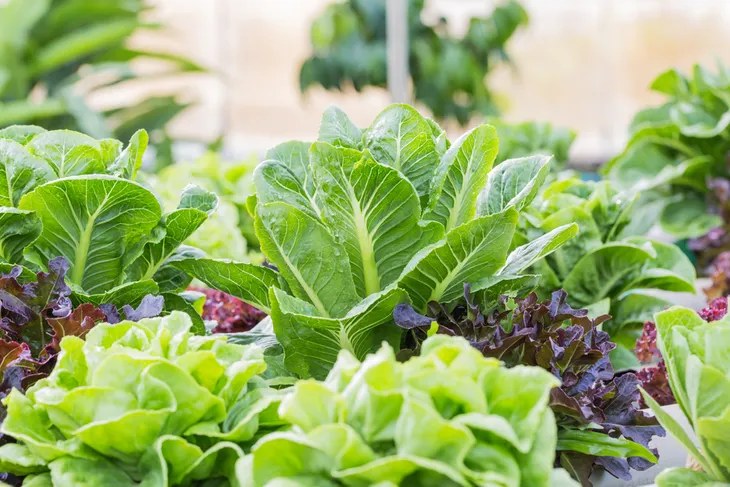The start of the spring season signifies a return of longer days, sunnier days, warmer days and an abundance of produce, particularly spring greens!
Here are six convincing reasons why spring greens are worth a nibble for their numerous health benefits…
Lower Risk of Cardiovascular Disease
A study from Tulane University School of Public Health and Tropical Medicine, in New Orleans, shows a correlation between diets rich in the B vitamin folate, found in spinach and leafy green vegetables like romaine lettuce, and a lower risk of heart disease.
The study found that just 2-cups of shredded romaine offers roughly 40-percent of your daily folate requirements. The added fiber in leafy greens can also be attributed to lowering LDL (low-density lipoprotein) or ‘bad’ cholesterol and the risk of stroke.
Type 2 Diabetes Prevention
According to research from the American Diabetes Association, the risk of developing type 2 diabetes increases when magnesium is chronically deficient. Luckily, spinach and arugula are spring greens that can bolster magnesium intake.
The study claims that magnesium works as “an essential cofactor for enzymes involved in glucose metabolism. Diets that offer daily magnesium through foods like leafy green veggies, whole grains, and nuts help prevent diabetes by improving glucose sensitivity.
Improved Muscle Performance
If you’re looking for more ways to pump up your muscle performance, this 2011 Swedish study may provide some encouraging answers. The study measured the performance (oxygen consumption) of a group of participants riding exercise bikes after taking a small dose of inorganic nitrate.
Study findings showed improved performance and mitochondria cell efficiency (meaning muscles used less oxygen) in those who took the inorganic nitrate supplements. Researchers note that muscle-powering inorganic nitrate can be found safely in leafy green vegetables, like spinach.
Reduce Breast Cancer Risk
When was the last time you enjoyed a crisp watercress salad? Perhaps among the lesser-known spring greens, this stream-fed, peppery green is rich in phen-ethyl isothiocyanate (PEITC), a natural-occurring isothiocyanate credited with cancer-prevention benefits.
Researchers from University of Southampton’s School of Medicine, in the U.K., found that the PEITC plant compound in watercress was able to suppress breast cancer cell development by disrupting tumor cell growth.
Eye Function and Health
Step aside, carrots! You’ve been dethroned in the ocular department by leafy greens. Research from AllAboutVision.com notes that leafy greens such as romaine, red leaf lettuce, and spinach contain the all-seeing trinity of zeaxanthin, vitamin A, and lutein.
These 3 essential carontenoids aid eye function and health by filtering out free radical light damage, helping eyes adjust from bright to dark, and even preventing atherosclerosis (buildup of fatty deposits in arteries), which can lead to a heart attack.
Boost Bone Health
If you want to build stronger bones, and prevent your risk of osteoporosis and bone deterioration with age, this study from Boston’s Tufts University may convince you to eat more leafy greens.
The study credits leafy greens like watercress, radicchio, and spinach with keeping bones strong thanks to plenty of vitamin K. Findings noted that women with low vitamin K intake often had low bone mineral density and risked hip fractures.









